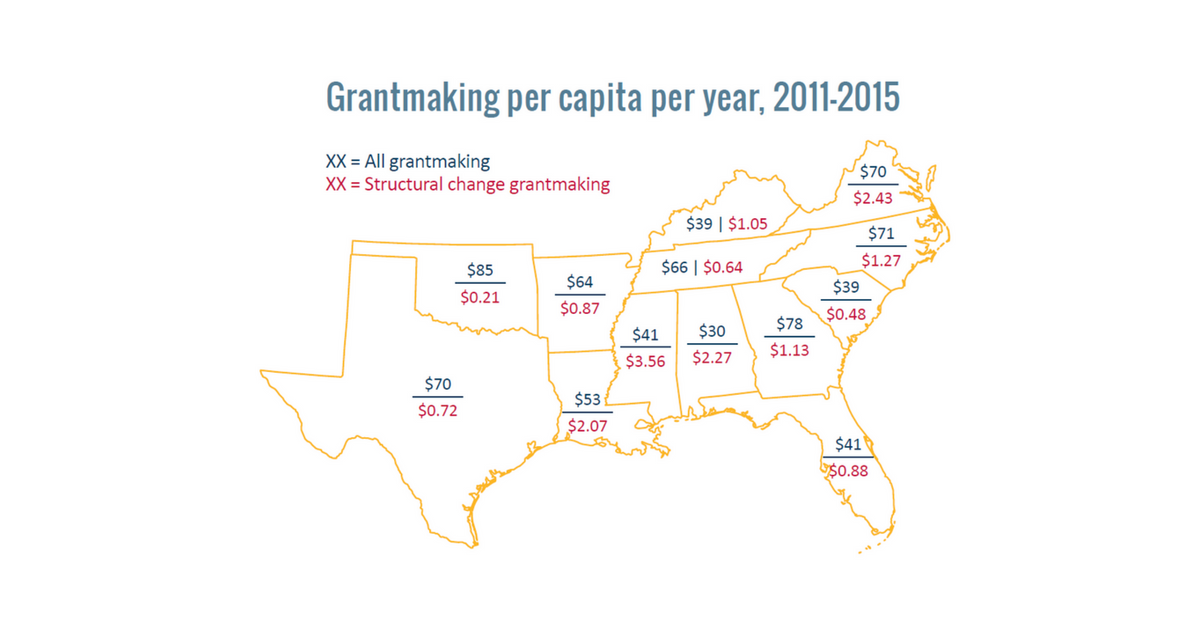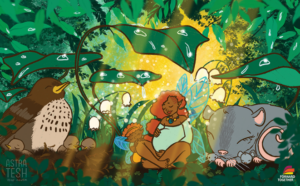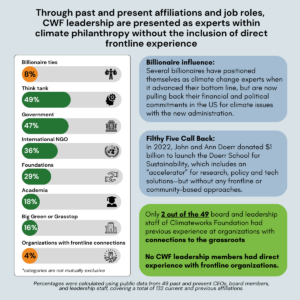While working on my forthcoming book, Decolonizing Wealth (release date Oct. 16), I have been energized by the As the South Grows series. I write about communities that have been excluded from philanthropy like those featured in the reports.
Specifically, I write about communities of color, particularly in the South, from which I originate (Go Heels!).
I’ve been inspired by the National Committee for Responsive Philanthropy (NCRP) and Grantmakers for Southern Progress (GSP), which have been working to drive more philanthropic resources to structural change in the South.
According to As the South Grows, between 2011 and 2015, foundations nationwide invested only 56 cents per person in the South for every dollar per person invested nationally. This is unacceptable!
The newest report, So Grows the Nation, provides three steps grantmakers must take to change this inequality, the first of which is to reckon with shared history.
Good structural change grantmaking in the South requires an understanding of the complicated history of the region and well as the region’s role in our nation’s history – a history of colonization and slavery. A history that has excluded.
In Decolonizing Wealth, I write:
In their intoxicated rush to consolidate wealth, colonizers reduced the number of religions, languages, species, cultures, social systems, media channels, political systems, etc. On all scales, global to local, this homogenizing campaign – global bleaching, you could call it – made the world not just more bland and boring, but also less innovative and less resilient. Evolution and innovation arises from difference and variation, not from sameness. These are fundamental principles of life.
Yet there’s a silver lining. Those most excluded and exploited by today’s broken economy possess exactly the perspective and wisdom needed to fix it. Ironically, the separation paradigm that locked us out and made us Others actually cultivated our resilience strategies. To survive the trauma of exploitation, we always had to believe that the dominant worldview was only one option, even when it seemed ubiquitous and inevitable. This has made us masters of alternative possibilities.
For us to have carried inside ourselves the possibility or even hope of a different world is powerful all by itself.
As the South Grows reinforces the case to “understand the past in order to help shape the future, including especially the ways in which power has been distributed in our communities and the impact the distribution has had on people’s lives.”
Understanding and grappling with history is painful. For some, it’s like yanking off a Band-Aid. There may be moments of discomfort.
I invite you to sit with it, in the understanding that things have been just as uncomfortable, if not painful, for the excluded, for a very long time.
An essential step in the process of resisting the urge to exclude in our grantmaking is decolonizing our thinking. A good place to start is hearing out respectfully and with an open heart the painful stories of those who have been exploited and excluded.
Decolonization is about a mind shift. But first we need to recognize the pain caused by the accumulation of wealth and how it was made on the backs of Indigenous people, slaves and low-wage workers, most of them people of color – many in the South.
We need to acknowledge the trauma. We need to re-open those wounds and grieve them and apologize for them.
When considering additional investment in the South, particularly in communities of color, understand that making a few trendy grants is not enough. It is simply token diversity.
We must go beyond representation to sharing ownership of philanthropy’s power with communities in the South – and making a commitment for full, long-term inclusion of system-change work in the region in our portfolios.
The work of GSP and NCRP, and the steps outlined in As the South Grows, give funders an opportunity to start walking our talk about diversity and equity, acknowledging that those most excluded and exploited by today’s broken economy possess exactly the perspective and wisdom needed to fix it.
We need to build new decision-making tables rather than setting one token place at the colonial tables as an afterthought.
Finally, we need to put our money where our values are and use money to heal where people are hurting and stop more hurt from happening.
This is not a silver bullet solution. There is no quick fix for the complexity of a history that has caused separation and excision.
The healing path to full inclusion is a process with roles for everyone involved, whether they’re rich or poor, funder or recipient, victim or perpetrator. For those of us from the South, we’ll be excluded no more.
An enrolled member of the Lumbee Tribe of North Carolina, Edgar Villanueva is the chair of the board of Native Americans in Philanthropy, a trustee of the Andrus Family Fund, and the vice president of programs and advocacy at the Schott Foundation for Public Education. Follow @VillanuevaEdgar and @DecolonizWealth on Twitter. Decolonizing Wealth is available for preorder here.
































































































































































































































































































































































































































